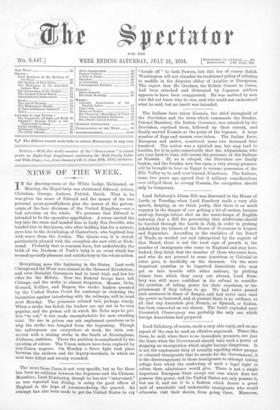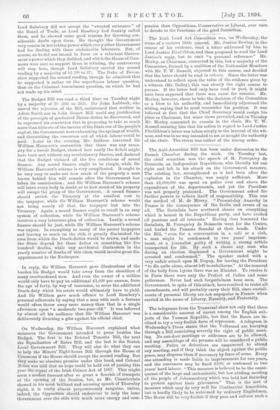Lord Salisbury, of course, made a very able reply, and
on one aspect of the case he used an effective argument. Times like these, he said, when there is no immediate pressure, are just the times when the Government should take such a power of stopping an immigration which might become dangerous. It is not the unpleasant duty of actually repelling either pauper or criminal immigrants that he covets for the Government, it is the discouragement to those immigrants to attempt taking refuge here which the conferring of such a legal right to refuse them admittance would give. There is not a single important European State except our own which does not possess this power, and the United States not only possess it, but use it, and use it in a fashion which deters a great mob of unsuitable and undesirable immigrants who would otherwise visit their shores, from going there. Moreover,
Lord Salisbury did not accept the "sweated estimates" of the Board of Trade, as Lord Rosebery had frankly called them, and he showed some good reasons for throwing con- siderable doubt upon them. He thought the Government very remiss in not taking power which every other Government had for dealing with these undesirable labourers. But, of course, as he did not intend to force on a reluctant Govern- ment a power which they disliked, and which the House of Com- mons were sure to support them in refusing, the controversy will stop here, though Lord Salisbury carried the second reading by a majority of 52 (80 to 37). The Duke of Devon- shire supported the second reading, though he admitted that he supported it rather on the superfluous labour question, than on the Criminal Amendment question, on which he had not made up his mind.


































 Previous page
Previous page